-
 bitcoin
bitcoin $87959.907984 USD
1.34% -
 ethereum
ethereum $2920.497338 USD
3.04% -
 tether
tether $0.999775 USD
0.00% -
 xrp
xrp $2.237324 USD
8.12% -
 bnb
bnb $860.243768 USD
0.90% -
 solana
solana $138.089498 USD
5.43% -
 usd-coin
usd-coin $0.999807 USD
0.01% -
 tron
tron $0.272801 USD
-1.53% -
 dogecoin
dogecoin $0.150904 USD
2.96% -
 cardano
cardano $0.421635 USD
1.97% -
 hyperliquid
hyperliquid $32.152445 USD
2.23% -
 bitcoin-cash
bitcoin-cash $533.301069 USD
-1.94% -
 chainlink
chainlink $12.953417 USD
2.68% -
 unus-sed-leo
unus-sed-leo $9.535951 USD
0.73% -
 zcash
zcash $521.483386 USD
-2.87%
What are the channels for buying USDT? What are the advantages and disadvantages of each?
USDT can be purchased through exchanges, P2P marketplaces, OTC desks, brokers, or DEXs, each with unique advantages and risks to consider.
Apr 02, 2025 at 08:49 pm
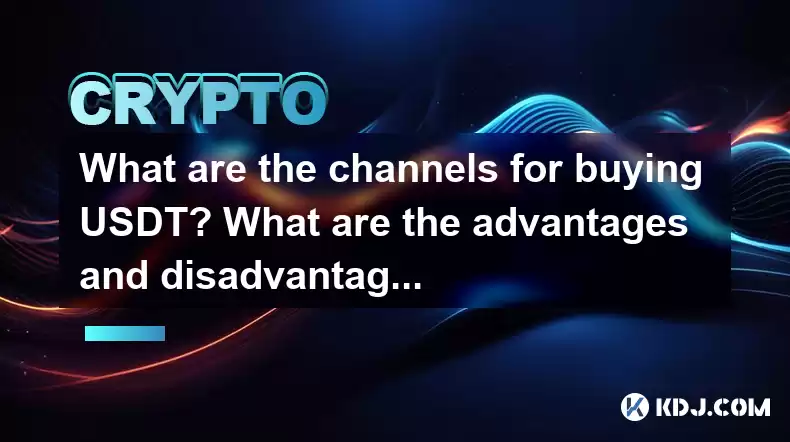
Purchasing USDT: A Comprehensive Guide to Channels and Considerations
USDT, a prominent stablecoin pegged to the US dollar, offers a relatively stable investment compared to volatile cryptocurrencies. However, acquiring USDT requires navigating various platforms, each with its own strengths and weaknesses. Understanding these channels is crucial for making informed decisions.
One of the most common methods is through cryptocurrency exchanges. Exchanges like Binance, Coinbase, Kraken, and Huobi offer USDT trading pairs with various fiat currencies (USD, EUR, etc.) and other cryptocurrencies. This allows for direct purchase using a bank account or credit/debit card. The advantage is the wide availability and generally competitive pricing. However, exchanges can be subject to regulatory scrutiny and security breaches, posing risks to your funds.
Another popular channel is through peer-to-peer (P2P) marketplaces. Platforms like LocalBitcoins and Paxful connect buyers and sellers directly, often facilitating transactions with various payment methods, including bank transfers and cash. The advantage lies in the flexibility and potential for better pricing in certain regions. However, P2P trading carries higher risks due to the lack of centralized regulation and the potential for scams. Thorough due diligence is essential.
Over-the-counter (OTC) trading desks provide a more private and potentially higher-volume trading experience, often catering to institutional investors and large-scale transactions. These desks usually offer personalized service and competitive pricing, but require significant capital investment and often involve a more complex process. The lack of transparency compared to exchanges can be a disadvantage.
Some cryptocurrency brokers offer USDT purchase options alongside other services. These brokers typically simplify the buying process, making it accessible to beginners. The convenience is a major advantage, but brokers may charge higher fees compared to exchanges or P2P platforms. Furthermore, their selection of cryptocurrencies might be limited.
Finally, some decentralized exchanges (DEXs) allow for USDT trading using various cryptocurrencies. DEXs prioritize user privacy and security through decentralized operation, minimizing reliance on centralized entities. However, using DEXs requires a higher level of technical understanding and often involves higher transaction fees and lower liquidity compared to centralized exchanges.
Advantages and Disadvantages Summarized:- Cryptocurrency Exchanges:
- Advantages: Wide availability, generally competitive pricing, user-friendly interfaces.
- Disadvantages: Subject to regulation and security risks.
- Peer-to-Peer (P2P) Marketplaces:
- Advantages: Flexibility, potential for better pricing.
- Disadvantages: Higher risk of scams, lack of regulation.
- Over-the-Counter (OTC) Trading Desks:
- Advantages: High volume, personalized service, competitive pricing (for large trades).
- Disadvantages: Requires significant capital, less transparent.
- Cryptocurrency Brokers:
- Advantages: Simplified buying process, convenient for beginners.
- Disadvantages: Higher fees, limited cryptocurrency selection.
- Decentralized Exchanges (DEXs):
- Advantages: Privacy, security through decentralization.
- Disadvantages: Higher transaction fees, lower liquidity, requires technical expertise.
Frequently Asked Questions
Q: Is it safe to buy USDT?A: The safety of buying USDT depends heavily on the platform you choose. Reputable exchanges with robust security measures are generally safer than less established P2P marketplaces. Always prioritize platforms with strong security features and a proven track record.
Q: What are the fees involved in buying USDT?A: Fees vary significantly depending on the platform. Exchanges typically charge trading fees, while P2P platforms may have transaction fees or require a premium. OTC desks and brokers have their own fee structures. Always check the fee schedule before making a purchase.
Q: Which platform is best for buying USDT?A: The best platform depends on your individual needs and risk tolerance. Consider factors like ease of use, fees, security, and the payment methods available. Beginners might prefer regulated exchanges, while experienced traders might explore P2P marketplaces or OTC desks.
Q: Can I buy USDT with a credit card?A: Many exchanges and some P2P platforms allow you to purchase USDT with a credit card. However, be aware that credit card purchases may incur higher fees and some platforms may have limitations on credit card usage.
Q: How long does it take to buy USDT?A: The time it takes to buy USDT varies depending on the chosen method and platform. Exchanges usually process transactions quickly, while P2P transactions can take longer due to the need for verification and manual transfers.
Q: What are the risks associated with buying USDT?A: Risks include platform security breaches, scams (especially on P2P platforms), regulatory changes affecting the availability of USDT, and the potential for de-pegging from the US dollar, although this is rare for reputable stablecoins.
Q: Are there any tax implications for buying and selling USDT?A: Yes, the tax implications of buying and selling USDT vary depending on your jurisdiction. Consult a tax professional to understand the relevant laws and regulations in your area. Capital gains taxes may apply to profits from trading USDT.
Q: What is the difference between USDT and other stablecoins?A: While USDT is a prominent stablecoin, others exist, such as USDC and BUSD. They are all pegged to the US dollar but differ in their underlying collateralization and the companies backing them. Research different stablecoins before making a choice.
Disclaimer:info@kdj.com
The information provided is not trading advice. kdj.com does not assume any responsibility for any investments made based on the information provided in this article. Cryptocurrencies are highly volatile and it is highly recommended that you invest with caution after thorough research!
If you believe that the content used on this website infringes your copyright, please contact us immediately (info@kdj.com) and we will delete it promptly.
- Shiba Inu Developer Defends Leadership Amidst Price Criticism, Eyes Future Developments
- 2026-02-01 03:50:02
- Dogecoin's Volatile Dance: Navigating Hidden Opportunities Amidst Nuclear Risk
- 2026-02-01 04:25:01
- MEXC's Gold Launchpad Ignites Zero-Fee Investments in Tokenized Gold Amidst Gold's Record Rally
- 2026-02-01 04:40:02
- DOGEBALL Unleashes L2 Gaming Revolution with Explosive Crypto Presale
- 2026-02-01 04:35:01
- GPT-5's Foresight, Solana's Frontier, and Ethereum's Enduring Gauntlet: Navigating the New Crypto Epoch
- 2026-02-01 04:35:01
- Crypto Coaster: Bitcoin Navigates Intense Liquidation Hunt as Markets Reel
- 2026-02-01 00:40:02
Related knowledge
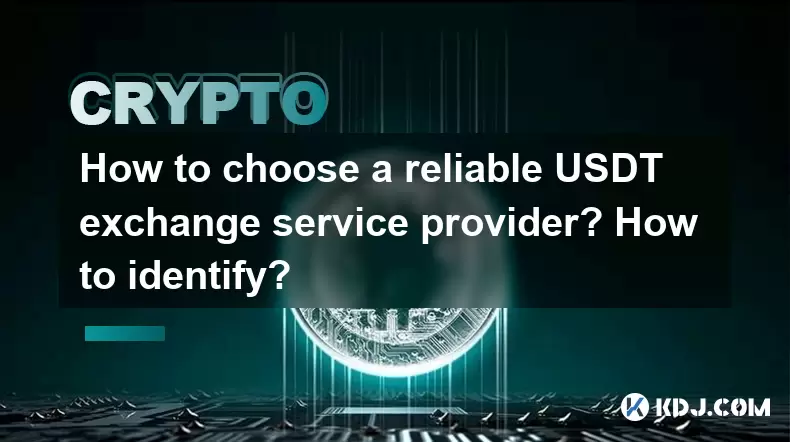
How to choose a reliable USDT exchange service provider? How to identify?
Jun 12,2025 at 03:15pm
Understanding the Role of USDT in Cryptocurrency TradingUSDT (Tether) is one of the most widely used stablecoins in the cryptocurrency market. It is d...
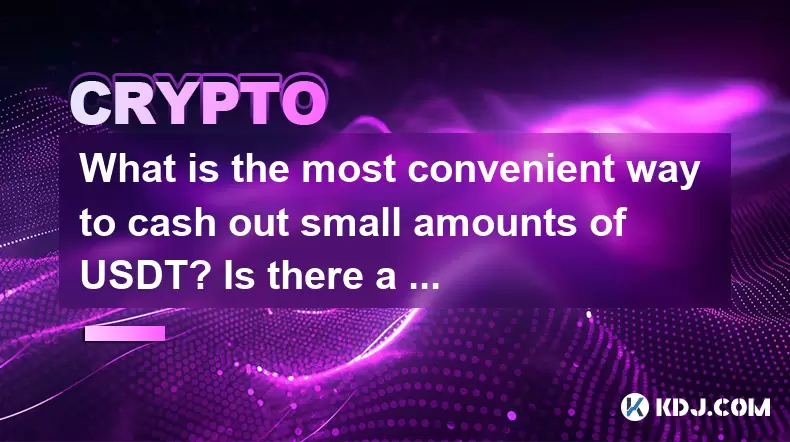
What is the most convenient way to cash out small amounts of USDT? Is there a shortcut?
Jun 11,2025 at 11:00pm
Understanding the Need to Cash Out Small USDT AmountsCashing out small amounts of USDT can be a challenge for many crypto users. Traditional methods o...
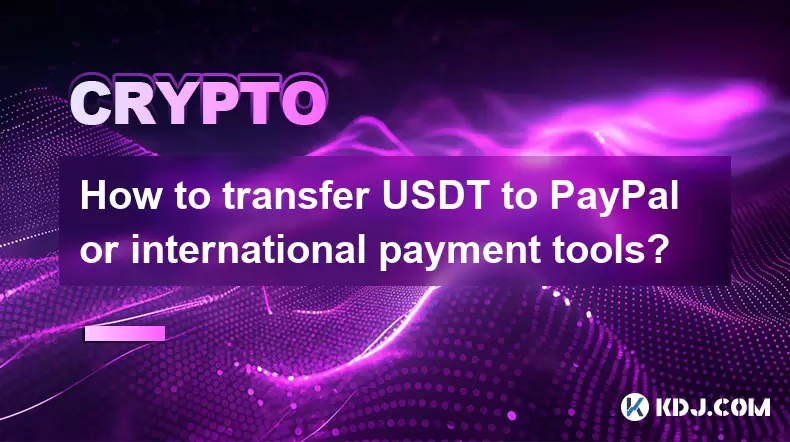
How to transfer USDT to PayPal or international payment tools?
Jun 15,2025 at 05:28am
Understanding the Basics of USDT and PayPal IntegrationUSDT (Tether) is a stablecoin pegged to the US dollar, offering blockchain-based value transfer...
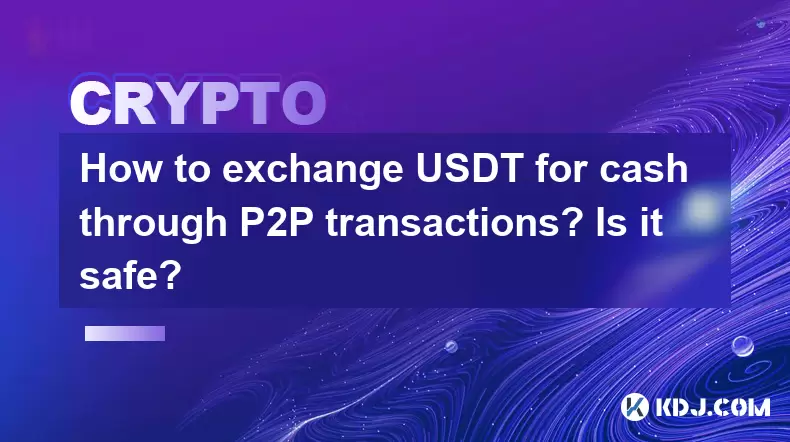
How to exchange USDT for cash through P2P transactions? Is it safe?
Jun 18,2025 at 07:56am
Understanding USDT and P2P TransactionsTether (USDT) is a stablecoin pegged to the value of the US dollar, making it a popular choice for users who wa...
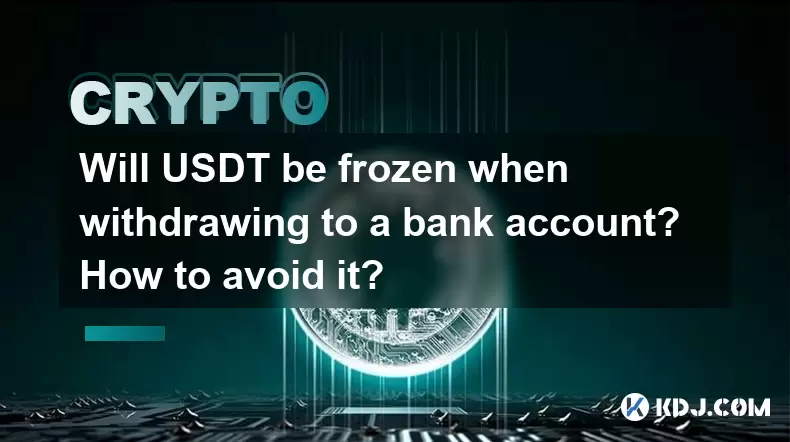
Will USDT be frozen when withdrawing to a bank account? How to avoid it?
Jun 15,2025 at 10:03am
Understanding USDT Withdrawals and Bank Account Freezing RisksWhen users decide to withdraw USDT (Tether) to a bank account, one of the most common co...
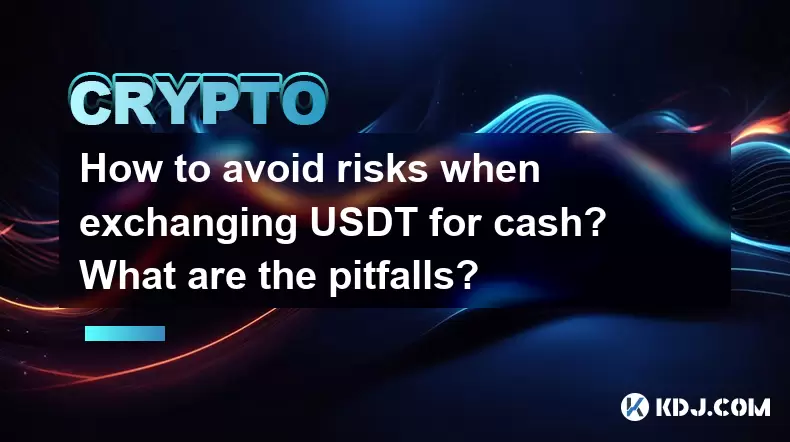
How to avoid risks when exchanging USDT for cash? What are the pitfalls?
Jun 11,2025 at 08:14pm
Understanding the Risks of Exchanging USDT for CashWhen exchanging USDT (Tether) for cash, users must be aware of the potential risks involved. As a s...

How to choose a reliable USDT exchange service provider? How to identify?
Jun 12,2025 at 03:15pm
Understanding the Role of USDT in Cryptocurrency TradingUSDT (Tether) is one of the most widely used stablecoins in the cryptocurrency market. It is d...

What is the most convenient way to cash out small amounts of USDT? Is there a shortcut?
Jun 11,2025 at 11:00pm
Understanding the Need to Cash Out Small USDT AmountsCashing out small amounts of USDT can be a challenge for many crypto users. Traditional methods o...

How to transfer USDT to PayPal or international payment tools?
Jun 15,2025 at 05:28am
Understanding the Basics of USDT and PayPal IntegrationUSDT (Tether) is a stablecoin pegged to the US dollar, offering blockchain-based value transfer...

How to exchange USDT for cash through P2P transactions? Is it safe?
Jun 18,2025 at 07:56am
Understanding USDT and P2P TransactionsTether (USDT) is a stablecoin pegged to the value of the US dollar, making it a popular choice for users who wa...

Will USDT be frozen when withdrawing to a bank account? How to avoid it?
Jun 15,2025 at 10:03am
Understanding USDT Withdrawals and Bank Account Freezing RisksWhen users decide to withdraw USDT (Tether) to a bank account, one of the most common co...

How to avoid risks when exchanging USDT for cash? What are the pitfalls?
Jun 11,2025 at 08:14pm
Understanding the Risks of Exchanging USDT for CashWhen exchanging USDT (Tether) for cash, users must be aware of the potential risks involved. As a s...
See all articles





















![THIS IS THE HARDEST COIN TO GET [POLY DASH] THIS IS THE HARDEST COIN TO GET [POLY DASH]](/uploads/2026/01/31/cryptocurrencies-news/videos/origin_697e0319ee56d_image_500_375.webp)




















































